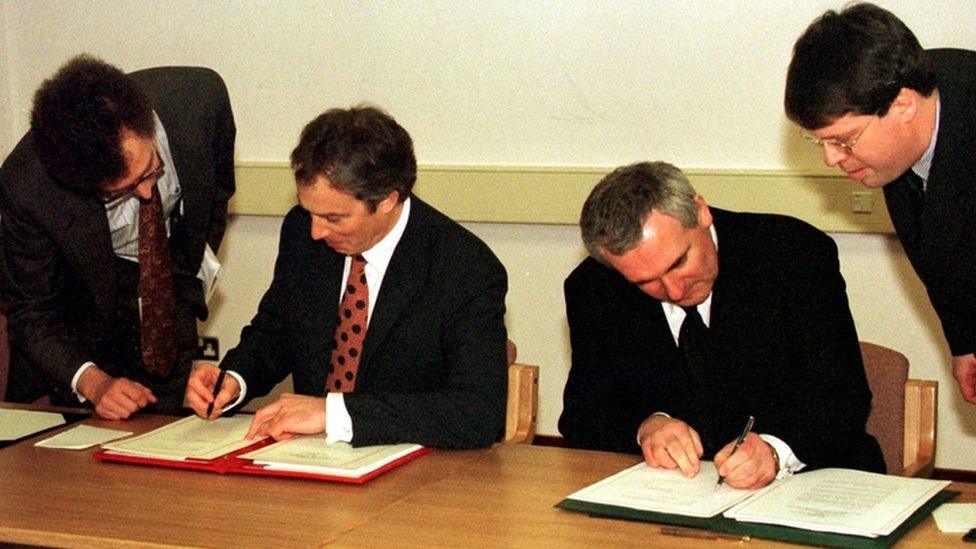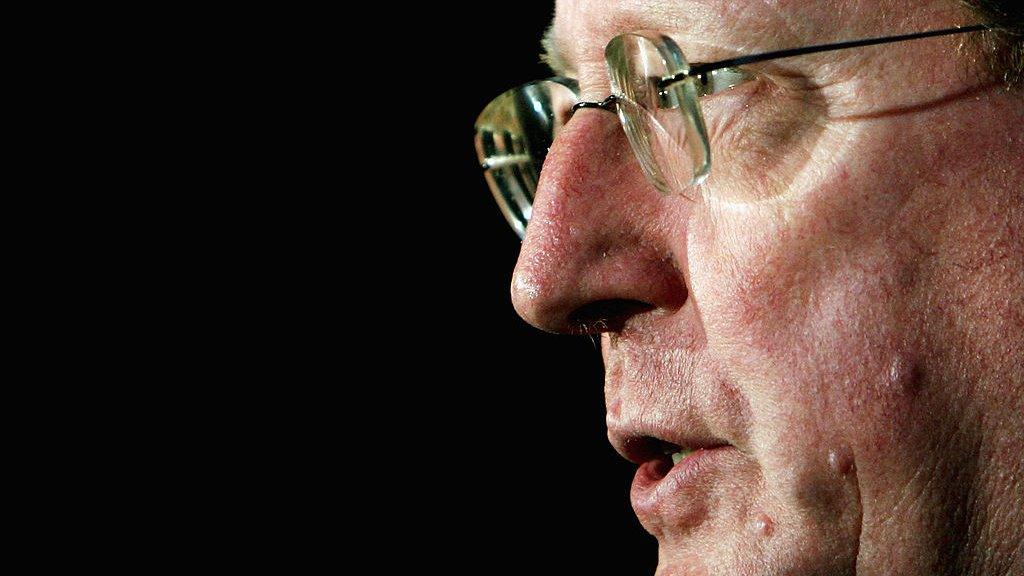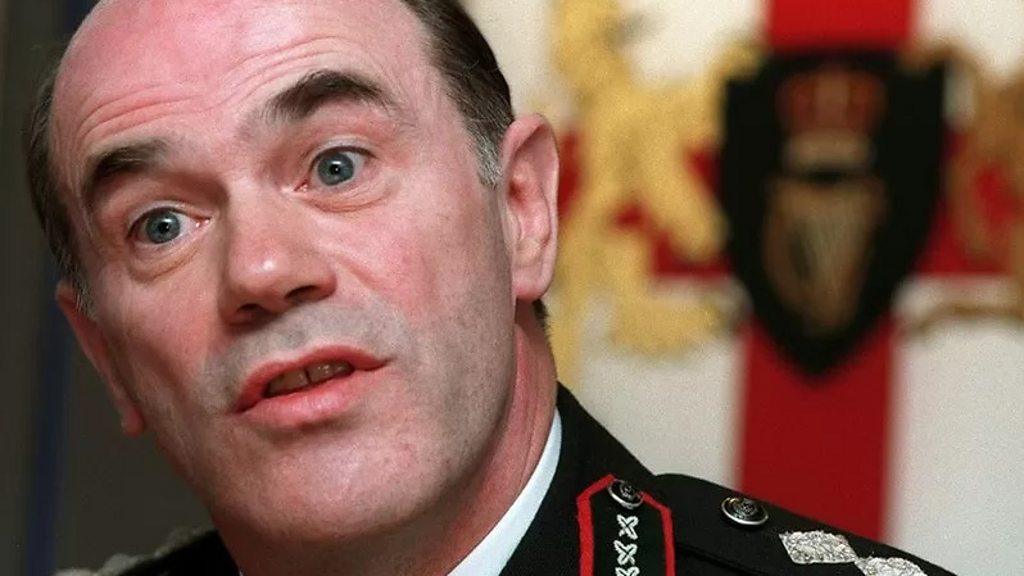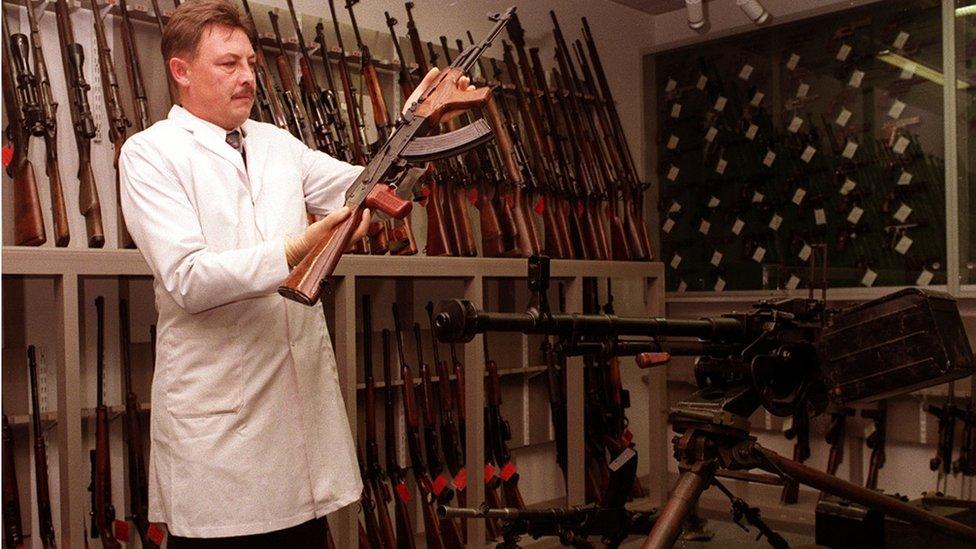Good Friday Agreement: Year '98 podcast marks 25 years
- Published

The prime minister at the time, Tony Blair, and then Taoiseach (Irish Prime Minister) Bertie Ahern sign the Good Friday Agreement
Do you remember where you were when the Good Friday Agreement was signed? If not, you're probably under 40.
As the 25th anniversary of the deal approaches we've compiled a podcast considering the text on the agreement and the context.
We hear from people who helped hammer out the deal that ended two years of talks chaired by American Senator George Mitchell.
If you were born after 1983 this might be more of a briefing.
If you were born before 1983, this might be a refresher.
The former foreign secretary Dominic Raab famously came unstuck when he admitted he hadn't "sat down and started at the beginning and gone through it". We have read it, so you don't have to.
'In the thick of negotiations'
The podcast takes a deep dive into the three strands of the agreement and also considers what was left in, what was taken out and what was kicked down the road and left for a future commission to decide.
We speak to some of those in the thick of the negotiations, including the Irish foreign affairs minister at the time, Liz O'Donnell: "It was complicated because on the one hand we were trying to end the conflict but we were also trying to put in place a new set of political institutions. I knew I was involved in historic stuff."
Year '98 busts some myths around the agreement, including disagreement about it's name (Good Friday or Belfast Agreement?) and the fact it was not physically signed by anyone.

U2 frontman Bono endorsed David Trimble and John Hume's calls for peace ahead of the 1998 referendum on the Good Friday Agreement
Former BBC journalist Martina Purdy said on the podcast that politicians were asked to "push a button" instead of signing the agreement on paper.
"Sinn Féin negotiator Martin McGuinness said David Trimble used a pencil to push the button, almost like he was still not sure about it."
"I think in his head Trimble knew he was doing the right thing but in his heart he hadn't fallen in love with that deal as yet. There was more emotion and joy on the nationalist side."
'A lot of pressure'
David Trimble was the leader of the Ulster Unionist Party. He died last year but his widow Daphne told us how pressured her husband was.
"There were no celebrations in our house," she said. "We just felt relief that we'd got it done. I had no food in the house and I think we had fish and chips for tea. The next day David went to get money out of the hole-in-the-wall and he'd forgotten his PIN number - that was the sort of pressure he was under."
Another fact that is often forgotten is that there were no party-to-party negotiations. Everything was done through the chair of the talks and as Good Friday and the talks deadline approached what became known as 'shuttle diplomacy' was the name of the game.
'Many high profile walk-outs'
Endless drafts and redrafts of the documents were produced and negotiators from the British and Irish governments went back and forth trying to get the parties to reach a consensus.
There were transatlantic phone calls from President Bill Clinton, and the eleventh-hour arrival of the British and Irish prime ministers to push the talks over the line.
Not everyone stayed inside the negotiations, most famously the late Reverend Ian Paisley, who was the leader of the Democratic Unionist Party, walked out as soon as Sinn Féin walked in.
And there were other high-profile walk-outs as the deadline approached.
We cover the most contentious and seemingly intractable topics: prisoner releases and decommissioning, to name just two.
You can hear about which part of the deal was hardest to negotiate and how it nearly brought the whole thing crashing down. You might be surprised to find out the answer.
The podcast will allow listeners to get under the skin of the agreement in their own time. And now that this period of our history is on the school curriculum, it will be a useful resource for teachers and students.

Year '98: The Making of the Good Friday Agreement is available from today on BBC Sounds.

Related topics
- Published3 April 2023

- Published2 March 2023

- Published2 March 2023
